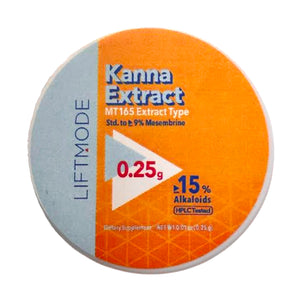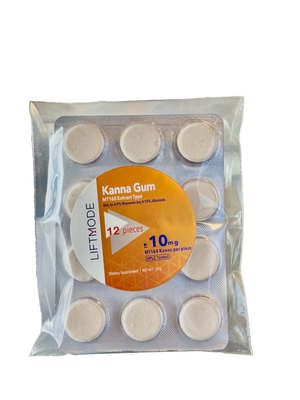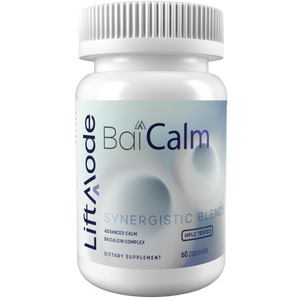Berberine is a wonderful and powerful health supplement that people use for a
number of great reasons. Some of the best Berberine benefits may include the ability to support your blood sugar levels, help your body to reduce cholesterol, help support a healthy metabolism, and help maintain a strong immune system.
This article will explain the best Berberine dosage. For more information about how to take Berberine, take a read through our supplement's description. Berberine has the potential to interact with a number of medications. We look into how to combine Berberine with other herbs and important safety aspects.
![]()
1. Recommended Berberine Dosage
The
recommended Berberine HCL dosage is around 1500 – 2000 mg daily. The best way to take this is in three to four separate doses.
[1] Taking doses higher than around 500 mg at a time may cause stomach cramps and gastrointestinal discomfort.
[2]
2. Take Berberine with P-Glycoprotein Inhibitors
[caption id=""attachment_1594"" align=""alignright"" width=""300""]
![]()
Milk thistle is a great P-Gp inhibitor that can help with Berberine[/caption]
If you are wondering about how to take Berberine effectively, using something called a P-Glycoprotein (P-Gp) inhibitor with Berberine seems to significantly improve the results.
[3]
P-Glycoproteins are fancy protein machines in your body that prevent toxins and foreign objects crossing through membranes and getting into your cells. When you take very small dosages of medication or supplements, P-Glycoproteins can prevent them from entering your cells and doing their job.
[4]
Researchers have shown that P-Gp inhibitors like cyclosporin A, verapamil, and antibody C219, may be able to increase Berberine absorption by up to 6 times!
[5] Increased absorption means that you'll need a lower Berberine dosage for optimum benefits.
There are a number of easily available herbs that act as mild P-Gp inhibitors. These include turmeric (especially turmeric extract), quercetin, and milk thistle. Herbs to avoid include St John’s wort and Green Tea extract – these may increase the activity of P-Glycoprotein in your cells.
[6]
3. How to Take Berberine: With Food
Until recently, it was thought that Berberine had a poor rate of absorption in your stomach. However, it seems as though it is actually well absorbed, but it is metabolized very quickly – meaning that blood tests don’t pick it up in high concentrations.
[7]
[caption id=""attachment_1595"" align=""alignright"" width=""300""]
![]()
It's great to take Berberine with food![/caption]
Although it is well absorbed, higher doses of Berberine have some side effects, including stomach cramps, diarrhea, and gastro. This is why it may be best to take Berberine with food or around 20 – 30 minutes before a meal.
While the effects may not be as pronounced and as fast-acting as if you’d taken Berberine on an empty stomach, taking it with food should help to reduce the stomach issues.
[8]
So, if you’re wondering about how to take berberine to avoid stomach cramps, take it with food. Light, healthy food would be best: fruits, veggies or grains.
4. Don’t Take Berberine If You’re On Medication
If you’ve ever asked about the correct Berberine dosage to use with medication, the answer is: don’t do it!
[caption id=""attachment_793"" align=""alignright"" width=""300""]
![]()
Berberine has the potential to interact with medication[/caption]
Berberine inhibits a number of proteins in your body called
cytokines. Cytokines are partly responsible for cell signaling – allowing the cells in your body to communicate with one another.
[9]
All the cells in your wonderful body are moving and thriving, and they actually ‘talk’ to one another using cytokines, neurotransmitters, hormones, protein factors, RNAs, and interferons.
[10]
As you can see, inhibiting a few cytokines for a couple of hours won’t prevent your cells communicating. However, it may cause certain medications to function incorrectly, which can cause serious negative health effects.
Potentially negative interactions seem to occur mostly with immunosuppressant medication, certain types of antibiotics, and with blood-sugar lowering medication.
[11]
5. Wait, Why Do People Take Berberine?
[caption id=""attachment_1543"" align=""alignright"" width=""300""]
![]()
Liftmode's Berberine HCl 200 grams, 98+% purity[/caption]
People take Berberine for a number of reasons - check out our
list of the top 8 benefits of Berberine! Some of the best benefits of Berberine include being able to help your body maintain healthy blood sugar levels, helping to support a healthy weight, and supporting a healthy immune system.
[12]
This article is about how to take Berberine for optimum efficiency. If you’d like to learn more about the benefits of Berberine, have a read through our
product description or read through the page on
Examine.com.
Conclusion
In conclusion, this article has hopefully presented some good new information on how to take Berberine. The recommended Berberine dosage is around 1500 – 2000 mg daily, taken in three to four separate doses to avoid stomach cramps. Berberine is best taken with a meal, or 20 to 30 minutes before eating. This also helps to avoid stomach cramps.
Berberine may interact severely with medication.
Do not take Berberine if you are on any medication. Please consult your doctor if you’d like to take Berberine but are on medication.
Medical Disclaimer
Not intended to treat, diagnose, or cure any disease or ailment. Please read and fully understand potential adverse effects before using this product. These statements have not been reviewed by the FDA and are not written by a medical professional. Please consult your doctor before using any supplements, especially if you have any medical conditions. Tristan
B.Sc. in Molecular Biology and Biochemistry Researched & written by
Tristan and verified by the Liftmode.com Research Team
References:
[1] Berberine in the Treatment of Type 2 Diabetes Mellitus: A Systemic Review and Meta-Analysis, H Dong et al., Evid Based Complement Alternat Med. 2012; 2012: 591654, Published online 2012 Oct 15
[2] Efficacy of Berberine in Patients with Type 2 Diabetes, J Yin et al., Metabolism. 2008 May; 57(5): 712–717.
[3] Inhibition of P-glycoprotein by HIV protease inhibitors increases intracellular accumulation of berberine in murine and human macrophages, W Zha et al., PLoS One. 2013;8(1):e54349, Epub 2013 Jan 23
[4] Role of P-glycoprotein in pharmacokinetics: clinical implications, JH Lin & M Yamazaki, Clin Pharmacokinet. 2003;42(1):59-98.
[5] The involvement of P-glycoprotein in berberine absorption, GY Pan et al., Pharmacol Toxicol. 2002 Oct;91(4):193-7.
[6] Herbal modulation of P-glycoprotein, S Zhou et al., Drug Metab Rev. 2004 Feb;36(1):57-104.
[7] HEPATOBILIARY EXCRETION OF BERBERINE, PL Tsai & TH Tsai, Drug Metabolism and Disposition April 2004, 32 (4) 405-412
[8] Berberine, The Source Natural, 2011, thesourcenatural.com, retrieved on 24 November 2016
[9] The Language the Cells Speak, Dr. P, Institute of Regenerative Medicine online, June 2015
[10] The Inside Story of Cell Communication, Genetics Science Learning Center online, University of Utah, retrieved on November 24, 2016
[11] Berberine, Examine.com, retrieved on November 24, 2016
[12] Clinical Applications for Berberine, J Schor, Nat Med Jrnl, Dec 2012, Vol. 4, Iss 12




